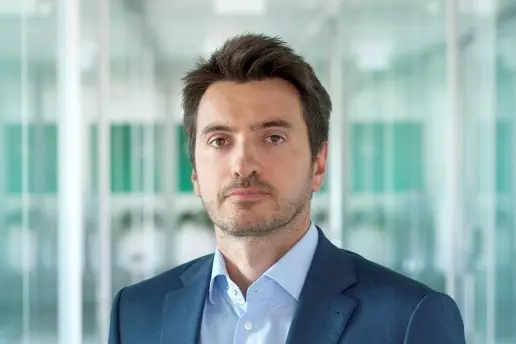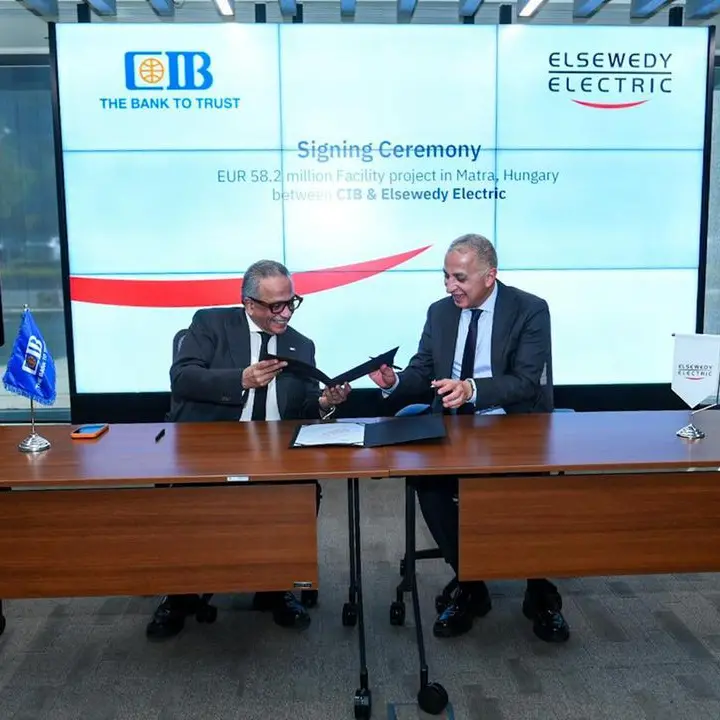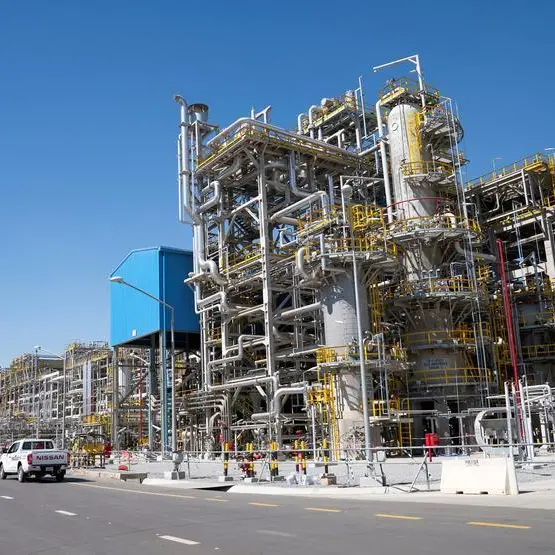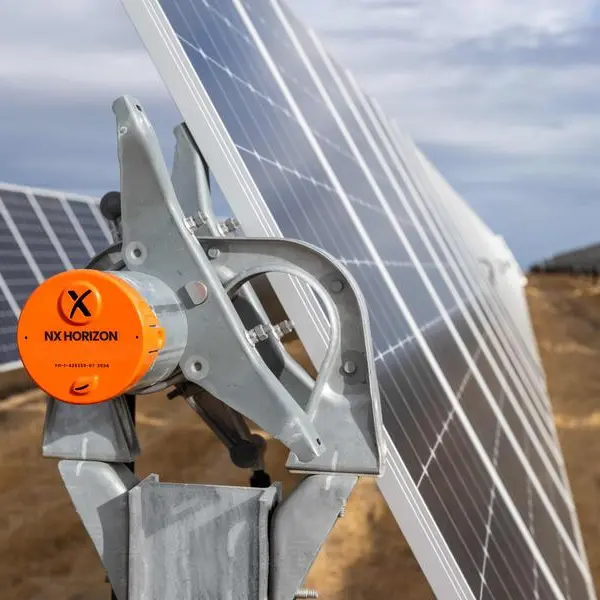PHOTO
Energy transition is facing a $18 trillion finance gap with renewables alone needing substantial investment for grid infrastructure and technologies like battery storage.
“Finding financing options that minimise or optimise the cost of capital is crucial," said Ferdinand Varga, Managing Director and Senior Partner, BCG, in an interview with Zawya Projects.
He pointed out that the main issue is not shortage of capital but rather a lack of well-structured projects
"The number of investable projects in the renewable energy sector is relatively limited,” he said, noting that intense competition for funding these limited projects has had unintended consequences. For
“To emerge successfully in this volatile market environment, investors need to aggressively structure the cost of capital. However, in the short-term, such aggressive financing structures could impede the progress of decarbonisation efforts,” he cautioned.
He admitted that duration for which conventional energy will remain necessary is difficult to determine with certainty since energy security is tied to fossil fuels for many developing countries.
“The global power landscape heavily relies on fossil fuels, and it is not feasible to abruptly discontinue their use,” he noted.
Varga expressed optimism about success in tripling global renewable capacity and doubling energy efficiency by 2030, which was an outcome at COP28 in Dubai. He pointed out that challenges such as supply chain disruptions have been addressed, but regulatory support and financial incentives remain crucial.
Excerpts from the interview:
When we say energy transition has a $18 trillion finance gap, what is being implied? Renewables are holding their ground, so what are the areas where investments are falling short?
Renewables still have a long way to go before reaching parity with other energy sources. The development of renewable energy is heavily reliant on having a robust grid infrastructure in place. Considerable investment will be required to strengthen and expand the grid. Additionally, to address the issue of intermittency, technologies like battery storage are essential for providing flexibility and balance to the system. The cost of developing such infrastructure is significant, with a substantial portion being attributed to the cost of capital, known as the levelised cost of electricity (LCOE). Therefore, finding financing options that minimise or optimise the cost of capital is crucial.
A combination of equity and debt is typically used to fund renewable energy projects. However, it is essential to note that the cost of equity is typically higher than the cost of debt. Securing debt financing often requires equity commitment, as is the case with any infrastructure investment. This framework provides a valuable perspective on how the funding of renewable energy projects should be approached.
Moreover, renewables' "green" nature has generated a heightened interest and even competition for funding these projects. Therefore, there is no shortage of capital available but rather a lack of well-structured projects that can attract investments readily. This scarcity of investment-worthy projects remains the primary challenge, with short-term constraints also being a factor to consider.
Are you implying that the development of investable projects is an area that may still require attention and improvement?
Indeed, the number of investable projects in the renewable energy sector is relatively limited. The intense competition for these projects has resulted in a challenging environment where entering with an assumed cost of capital is necessary, often below one's weighted average cost.
Consequently, compared to investments in the oil and gas sector, renewable energy projects may appear less attractive due to the substantially higher returns offered by the former. Hence, unless considering that environmental impact strongly factors into the decision-making process, investing one's capital in renewable projects may not be perceived as a rational choice.
At COP28, there were discussions and announcements about concessional finance. The sentiment was that the availability of concessional finance, characterised by friendlier terms, is expected to increase. Do you agree?
Consider a simple example of constructing a power plant. You could either choose to build a gas-fired power plant or a renewable energy-based power plant. Upon thorough examination of the total cost, including both fixed and variable expenses associated with fuel, it becomes evident that renewables are lower in the levelised cost of electricity (LCOE) bid. The cost of capital for oil and gas projects can be typically higher due to their non-competitive marginal cost. The cost of gas remains more expensive than a fully-loaded cost of renewables if the already invested plant is not factored into the equation.
So, why are non-commercial terms and conditions still necessary for renewables? The scarcity of investable renewable projects leads to intense competition among investors. To emerge successfully in this volatile market environment, investors need to aggressively structure the cost of capital. However, in the short-term, such aggressive financing structures could impede the progress of decarbonisation efforts.
How do we address this challenge of making more of these projects bankable?
In theory, if more feasible projects are available for investment than financing accessible for those projects, it is reasonable to expect developers to refrain from submitting bids with excessively low costs. If they do not secure one particular project, future opportunities will always exist. However, suppose the visibility of these opportunities is limited. In that case, the number of projects is not significant, and capital is abundant; developers are essentially undermining their potential gains to such an extent that it becomes unappealing, even for them.
Additionally, there are individuals who firmly believe that it is incorrect for financial institutions to backtrack on funding fossil fuel projects. The global power landscape heavily relies on fossil fuels, and it is not feasible to abruptly discontinue their use.
This question holds great interest for numerous stakeholders, although I am uncertain if it is a genuine concern. Fossil fuels will continue to be present since it is not currently possible to implement sufficient renewable alternatives. If renewable energy projects cost less than conventional energy sources, it would only make logical sense to invest in the former if they were readily accessible. However, in the absence of access to renewable sources, any form of energy would suffice as energy security takes precedence.
Rapidly developing economies require power to fuel their growth. If they can obtain this energy from non-carbon emitting sources like wind, solar, or nuclear power, it would be an ideal solution. However, should these economies be prohibited from progressing if they are unable to access non-carbon-emitting power? Should they demand that their children refrain from using lights and halt their educational pursuits due to limited lighting? Clearly, such measures would not be taken. Until a viable and financially feasible alternative becomes available, investment in conventional energy will persist.
The duration for which conventional energy will remain necessary is difficult to determine with certainty. It is my belief that all endeavors should be directed towards deploying as much renewable energy as possible. If predetermined milestones are not attained, then it may be appropriate to reevaluate them.
Presently, the pressing matter at hand is determining how expeditiously we can advance to triple the global capacity for renewable energy and double the average annual rate of energy efficiency enhancements worldwide by 2030. This, to me, is the true question, rather than contemplating the eventual need for conventional energy.
That begs the question – are we on track to achieve tripling of renewables and doubling of energy efficiency?
We are well-positioned for success, given our strong visibility and trajectory. As previously mentioned, there are certain renewable projects that currently lack financial appeal and require adjustments. The challenges arising from the supply chain disruptions caused by the COVID pandemic have largely been resolved. Fortunately, major equipment and component manufacturers have increased production, ensuring that supply is no longer the main constraint. Rather, the lack of regulatory support and inadequate financial incentives are the primary obstacles we must address. It is essential to prioritise overcoming limitations such as grid infrastructure limitations, land availability, and the prevailing regulatory and bureaucratic complexities associated with deploying these projects.
What are your thoughts on COP28?
From my perspective, the essence of COP28 lies in the exceptional engagement and drive exhibited by global stakeholders as they convene to deliberate on crucial topics, seek innovative solutions, and secure funding. It is noteworthy that CEOs and key shareholders of businesses have also contributed to leveraging this collective global interest, motivation, and impetus toward achieving tangible outcomes. The significance of facilitating collaboration and cultivating a shared sense of energy and motivation cannot be understated.
What will be the priorities for BCG's Energy Department consulting team in the coming years as the energy transformation unfolds?
Our focus should be on ensuring that regulators possess comprehensive awareness and a practical understanding of the bottlenecks within the sector. It is imperative to implement effective measures to debottleneck projects, enabling the timely deployment of capital that is currently seeking investment opportunities. By expediting this process, we can generate substantial financial returns for investors interested in this sector, thus creating parity with the returns traditionally associated with investments in the oil and gas industry. Achieving such an outcome would be highly desirable and aligned with our objectives.
(Reporting by Anoop Menon; Editing by Dennis Daniel)
Subscribe to our Projects' PULSE newsletter that brings you trustworthy news, updates and insights on project activities, developments, and partnerships across sectors in the Middle East and Africa.





















